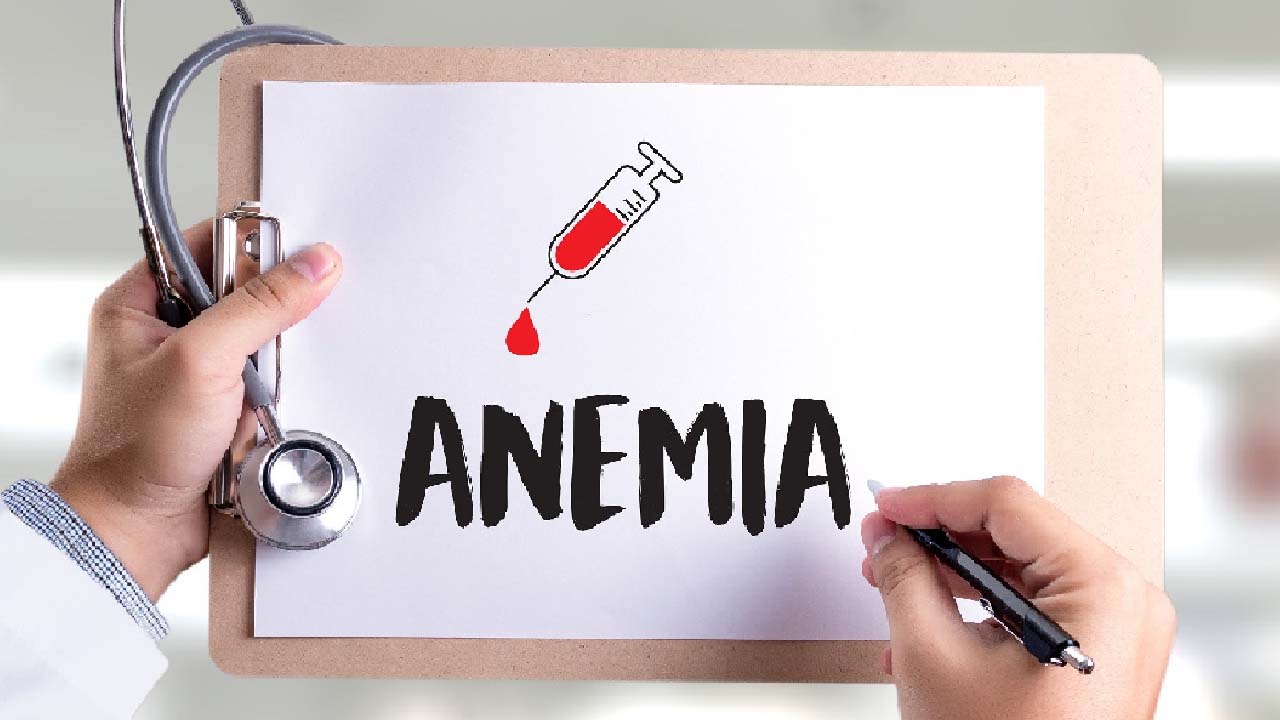Anemia is a condition in which there is an insufficient amount of red blood cells or hemoglobin in the blood. Hemoglobin is the main part of red blood cells and plays an important role in binding oxygen. If the count of RBCs or hemoglobin is too low in the blood, it means the body cells are not getting sufficient oxygen to carry out bodily functions. Therefore, the body organs get devoid of nutrients and blood supply so as to perform all functions of the body.
Anemia is the most common blood disorder. According to the World Health Organization (WHO), women in the reproductive age group and having hemoglobin levels lower than 12 grams per deciliter (g / dL), as well as children under five with hemoglobin levels lower than 11.0 g / dL are considered anemic.
India ranks 170 out of 180 countries for anemia among women, according to a global nutrition survey, 2016. Anemia in children and women worsened in the past half a decade across most states and Union territories, according to the latest National Family Health Survey (NFHS). As many as 68.4 percent of children and 66.4 percent of women surveyed suffered from anemia in 2019.
Risk factors for anemia
Age – Growing children require more iron for proper growth and development. This is the reason why a proper nutritional diet full of fruits, vegetables, and dairy products is important for young children. Consuming an inadequate amount of iron and vitamins will lead to anemia and other health risks.
Frequently donating blood – Donating blood is good for the social cause. But doing it frequently can negatively affect health. The person who is donating blood needs to be healthy from within and then only he/she is liable to donate blood. Check all your body parameters for their values and then take the decision for donating.
Malnourishment – Malnourishment is a condition in which the body lacks essential nutrients and minerals for proper growth and development. Children of growing age are at increased risk of malnourishment as the body requires an extra dose of nutrients thus incompliance causes the risk of developing anemia.
Pregnancy and childbearing years – Pregnancy demands a greater supply of blood for the developing fetus and during the delivery excessive loss of blood through menstruation puts the women at a higher chance of developing the condition because of iron deficiency.
Menstruation – Menstruation is the loss of red blood cells. Women of the reproductive age group are liable to have a higher risk of iron deficiency because of excessive menstruation. This puts them at a higher risk category for iron deficiency or anemia.
Patient of sickle cell anemia - Sickle cell anemia is when the patient’s red blood cells are misshaped and cause them to get stuck in smaller blood vessels. This increases the likelihood of developing anemia in these patients.
Having a family history – Patients who have a family history of anemia are already on the verge of developing anemia later in life than patients who don’t have a family history. Moreover, anemia is an inherited disease that puts you at a level higher than the rest.
(Disclaimer: The content on this site is for informational purposes only, and should not be taken as professional medical advice. Always seek the guidance of your doctor or other health professionals for any questions you may have regarding your health or a medical condition.)

 Growing children and women are at higher risk of developing the condition of anemia. Children require more iron for proper growth and development and women of the reproductive age group need extra iron to compensate for the blood loss during menstruation.
Growing children and women are at higher risk of developing the condition of anemia. Children require more iron for proper growth and development and women of the reproductive age group need extra iron to compensate for the blood loss during menstruation.
















.jpeg)











.jpg)




